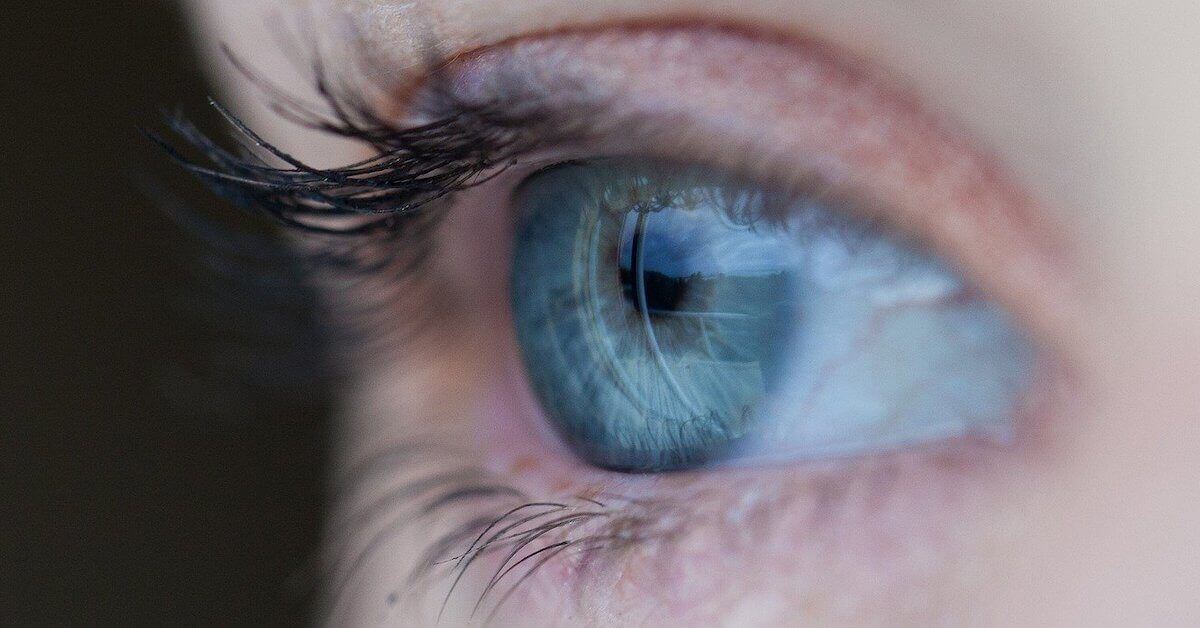What causes dry eyes?
Dry eye is a common eye condition.
You might have dry eye if your eyes feel irritated, watery and sore. It is an increasingly common eye condition caused primarily by a problem with tears. Dry eye has been linked to looking at screens for extended periods of time, and with more of us working from home than ever before, it’s important to take steps to look after your eyes.
There are several other causes of dry eye, including certain medications, contact lenses and natural aging.
Every time you blink you create the tear film across the front of your eye. Dry eye happens if these tears aren’t spread properly or if the tear film is of poor quality. If there are tiny patches of dryness in the tear film then your eye feels uncomfortable and each time you blink the patch will be irritated.
Royal College of Ophthalmologists
Dry eye is also known as keratoconjunctivitis sicca. It is an ongoing eye condition that cannot be cured, however there are now many ways to treat the symptoms of dry eye and improve your level of comfort.
Symptoms of dry eye
In most cases, dry eye causes mild discomfort. The condition is ongoing and typically affects both eyes but occasionally one eye is affected more than the other. In severe cases, the condition can be painful and cause permanent eye damage.
Our clients typically describe the following symptoms:
- Gritty or sandy sensation
- Irritated
- Red eyes
- Burning or stinging
- Tender eyelids
- Watery eyes
- Sensitive to light
You may feel as though you have something in your eye and be tempted to rub your eyes.
The severity of the problem depends on the cause of the dry eye. To find out if you have dry eye, take our quick questionnaire below.
Dry eye from natural aging
Symptoms of dry eye are common over the age of 50 and a natural symptom of getting older – the condition is especially common in the eldery. Eyelids help to distribute tear fluid each time you blink, and with age your eyelids become less effective at spreading the tears. Tear glands become less effective too, so the quality of your tear film reduces as you age.
Dry eyes and contact lenses
Contact lens users are more at risk of developing dry eye. When dry eye is caused by wearing contact lenses it is sometimes called CLIDE (contact lens induced dry eyes). This happens because the contact lens interferes with your eyes’ ability to produce tears and therefore inhibits the natural lubrication of your eye. This can make your eyes feel dry, sore and tired.
It’s important to follow advice for wearing contact lenses closely and not wear them for longer than is recommended by your optician. If you wear contact lenses for an extended period of time (or longer than recommended), it can make dry eye symptoms worst.
Contact lenses made using the most advanced materials are designed to be as permeable as possible, improving the oxygen flow to your eye and reducing the chances of developing contact lens induced dry eye.
Dry eye from medication
Certain medications, including some antihistamines, oral contraceptives, antidepressants and blood pressure drugs may cause dry eye as a side effect. Long term medical conditions such as rheumatoid arthritis may also increase the chances of developing dry eye.
Dry eyes from screen time
Dry eyes have been linked to using screens for prolonged periods of time, something that can be unavoidable in modern life, especially for those of us working remotely from home more recently.
If you spend most of your day looking at a screen and your eyes feel sore and irritated by the end of the afternoon, it’s possible that you are suffering from dry eye.
To reduce the risk of getting dry eyes from using a computer, you should ensure that you take regular breaks away from your screen. Try setting a timer to remind you or go for a quick walk outside and allow your eyes to focus on objects in the distance.
How can I tell if I have dry eye?
Take our short questionnaire and add up your score to see if you might be suffering from dry eye.
A score of more than 6 indicates a dry eye.
A score of over 12 suggests a referral is necessary – please contact us.
Treatment options for dry eye
There are some simple things you can do to improve the comfort of your eyes, including taking regular breaks from your screen, drinking plenty of water and using artificial tears (eye drops).
Dry eye is relatively easy to treat when the causes have been investigated.
We provide a dedicated dry eye clinic to address the condition. With so many possible causes of dry eye, we will carefully consider your own symptoms. After a specialist examination of your tears, we’ll recommend some of the latest treatments to alleviate your dry eye symptoms and ensure that you leave knowing exactly how to treat your particular condition with a bespoke care plan. Our dry eye clinic package includes one months supply of eye drops and care products.
We will then invite you to return for a follow up appointment to fine tune your dry eye treatment for a period of up to 3 months.
For more information on our dry eye clinic or any of our eye drops and solutions for dry eyes, please contact us and we can help.

